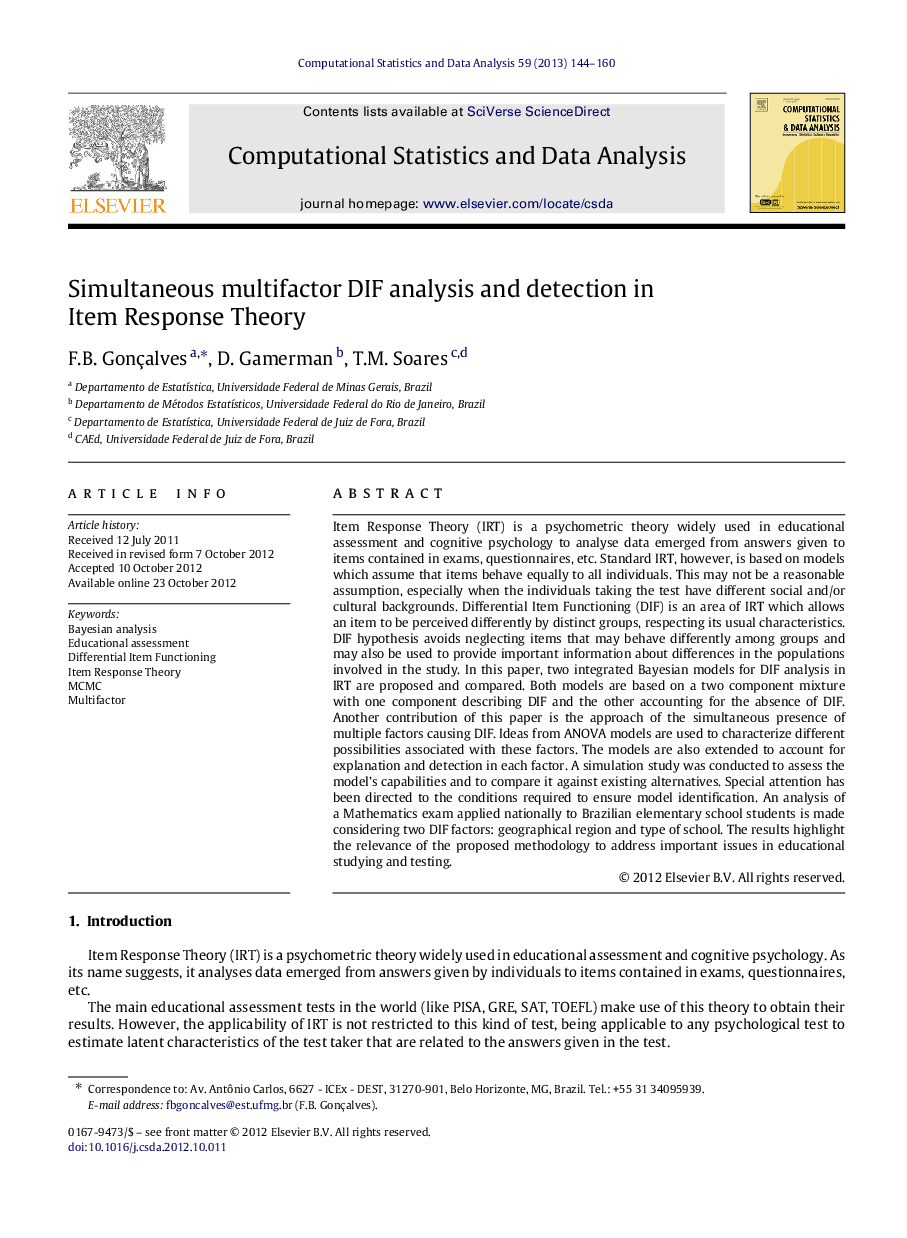| Article ID | Journal | Published Year | Pages | File Type |
|---|---|---|---|---|
| 416833 | Computational Statistics & Data Analysis | 2013 | 17 Pages |
Item Response Theory (IRT) is a psychometric theory widely used in educational assessment and cognitive psychology to analyse data emerged from answers given to items contained in exams, questionnaires, etc. Standard IRT, however, is based on models which assume that items behave equally to all individuals. This may not be a reasonable assumption, especially when the individuals taking the test have different social and/or cultural backgrounds. Differential Item Functioning (DIF) is an area of IRT which allows an item to be perceived differently by distinct groups, respecting its usual characteristics. DIF hypothesis avoids neglecting items that may behave differently among groups and may also be used to provide important information about differences in the populations involved in the study. In this paper, two integrated Bayesian models for DIF analysis in IRT are proposed and compared. Both models are based on a two component mixture with one component describing DIF and the other accounting for the absence of DIF. Another contribution of this paper is the approach of the simultaneous presence of multiple factors causing DIF. Ideas from ANOVA models are used to characterize different possibilities associated with these factors. The models are also extended to account for explanation and detection in each factor. A simulation study was conducted to assess the model’s capabilities and to compare it against existing alternatives. Special attention has been directed to the conditions required to ensure model identification. An analysis of a Mathematics exam applied nationally to Brazilian elementary school students is made considering two DIF factors: geographical region and type of school. The results highlight the relevance of the proposed methodology to address important issues in educational studying and testing.
